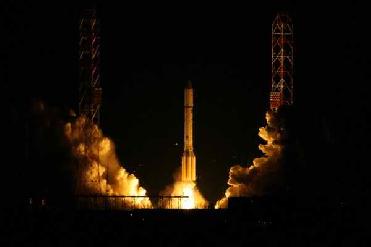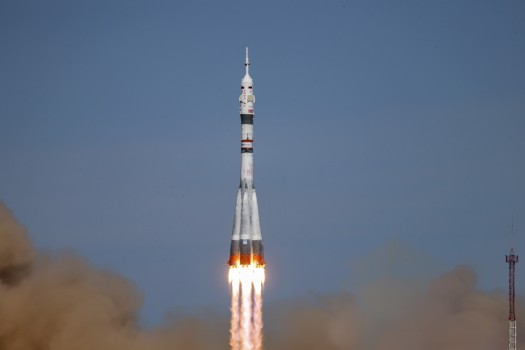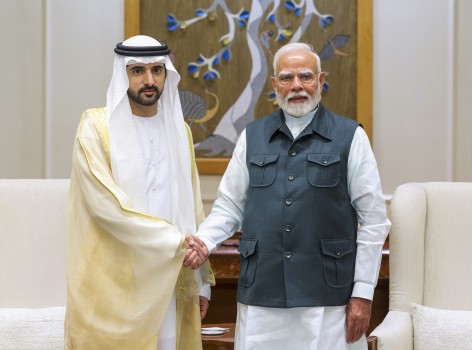
This is the first time that a dual launch of satellites of a new series Express AM and Express–MD have been conducted. Khrunichev Space Research and Production Space Center image
MOSCOW (BNS): Two new Russian telecommunications satellites - the Express-AM44 and Express MD1– launched aboard a Proton–M launcher with the Breeze M upper stage, from the Baikonur space centre at 03:03 Moscow time (MT) on Wednesday were successfully delivered into predicted geo-stationary orbit (GEO).
This is the first time that a dual launch of satellites of a new series Express AM and Express–MD have been conducted. An enhanced version of the Proton vehicle was used to insert both satellites (with total mass over 3700 kg) directly into GEO.
The new Express–series satellites, ordered and operated by Russian Satellite Communication Company-RSCC, were built within the Russian Federal Space Programme for 2006-2015. The Express AM33 satellite was the first RSCC satellite launched within the Programme aboard Proton Breeze M in January last year.
Once operational, the new satellites will be capable of satisfying the growing demands of the Russian state and commercial customers on up-to-date communications and broadcasting, data, Internet and VSAT services, officials said.
Giving details of the launched satellites, the officials said that the Express-AM44 satellite manufactured by Information Satellite Systems – Reshetnev Company (Russia) in cooperation with Thales Alenia Space (France) on RSCC' order. “The satellite will carry 10 C-band (40 MHz) transponders, 16 Ku-band (54 MHz) transponders, and 1 L-band (1 MHz) transponder with improved power characteristics,” they said.
On the other hand, the Express-MD1 light satellite is manufactured by Khrunichev State Research and Production Space Center (Russia) in cooperation with Thales Alenia Space (Italy) on the order form RSCC. The satellite will be equipped with 8 C-band (40 MHz) transponders and 1 L-band (0,5 MHz) transponder, they said.













The Indian Air Force, in its flight trials evaluation report submitted before the Defence Ministry l..
view articleAn insight into the Medium Multi-Role Combat Aircraft competition...
view articleSky enthusiasts can now spot the International Space Station (ISS) commanded by Indian-American astr..
view article